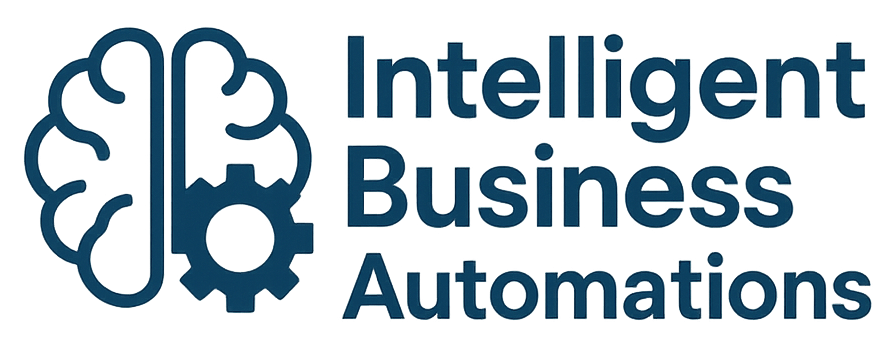AI Chatbots for Customer Engagement: How Small Businesses Can Boost Satisfaction with Automation
- Learn what AI chatbots are and how they operate
- Explore key customer service benefits for small businesses
- See real-world use cases, like FAQ handling and appointment scheduling
- Understand how AI bots gather data to personalize interactions
- Get tips for implementing AI chatbots affordably and efficiently
- Discover recommended platforms suited for small and mid-sized businesses
What Are AI Chatbots and How Do They Work?
AI chatbots are software tools powered by artificial intelligence that simulate real human conversations. They’re designed to respond to customer questions instantly, helping businesses deliver fast and consistent service without needing someone available 24/7.
Natural Language Processing, Explained Simply
These bots use something called natural language processing (NLP) to understand what someone is saying—even if it’s asked in a casual, human way. Think of NLP as a chatbot’s way of recognizing the intent behind a question.
Learning Over Time
AI chatbots also use machine learning, meaning they can improve over time by learning from previous interactions. The more they talk with customers, the better they get at providing useful answers.
Rule-Based vs. AI Chatbots
Not all bots are created equal. Rule-based bots give scripted answers based on specific keywords. AI-powered bots, on the other hand, have more flexibility and can understand more natural conversation patterns—making them better suited for richer customer engagement.
Benefits of Using AI Chatbots for Small Business Customer Service
- 24/7 Availability: Customers can reach out anytime, even outside normal business hours—without hiring a round-the-clock team.
- Lower Workload for Support Teams: Chatbots handle repetitive questions so your human staff can focus on solving more complex, personal issues.
- Faster Response Times: Immediate answers keep customers happy and reduce wait times.
- Cost-Effective Scalability: As your customer base grows, your chatbot can handle more conversations—no additional hiring required.
Common Use Cases: Chatbot Features That Support Engagement
Answering FAQs Automatically
From “What are your hours?” to “How do I make a return?”—AI chatbots can provide clear, consistent answers to the most common customer questions in seconds.
Booking Appointments
Integrate your bot with an online calendar and let it handle appointment scheduling, confirmations, and even rescheduling requests—all without manual effort.
Product Guidance and Upselling
Chatbots can recommend the right product or service based on what a customer is looking for, and may gently suggest upgrades or add-ons to boost your average order value.
Form Collection and Surveys
Need info for a quote or want feedback after a service? Chatbots can collect names, emails, preferences, or survey answers without sending customers to a separate form.
Proactive Messaging
Use chatbots to send reminders, confirm appointments, or notify customers of special offers—all in a friendly, non-intrusive way.
Chatbot Personalization and Customer Data Collection
Personalized Conversations
The smarter your chatbot, the more personalized it becomes. AI tools learn from past chats, product questions, and page visits—adapting responses for each person.
Using History for Better Recommendations
Chatbots can refer to a customer’s previous purchases or browsing history to offer relevant help or upsell offers at just the right time.
Responsible Data Use
With great data comes great responsibility. Make sure your bot follows privacy standards like GDPR or CCPA to protect customer info and maintain trust.
Why It Matters
Personalized conversations increase conversions, repeat business, and overall customer loyalty—making the customer experience not just good, but memorable.
Implementation Tips and Cost Considerations
Start with a Clear Goal
Decide what you want your chatbot to accomplish. Is it for customer support? Lead capture? Sales assistance? Clear goals make setup much easier.
Choose the Right Type of Tool
Some small businesses thrive with affordable, pre-built chatbots you can launch in minutes. Others opt for custom solutions with deeper integration. Choose based on your time, budget, and needs.
Understand the Costs
- Free: Basic bots with limited conversations or integrations.
- SaaS Tools: $10–$50 per month for most small business platforms.
- Custom Builds: Higher upfront investment but tailored features and automation.
Plan for Ongoing Maintenance
Like any good team member, your chatbot benefits from training. Review conversations, tweak the flow, and keep it aligned with your business goals.
Recommended AI Chatbot Platforms for Small Businesses
There’s no one-size-fits-all platform, but here are a few excellent options for getting started:
- Tidio: Easy to set up, affordable, with essential support features. Great for first-time chatbot users.
- Intercom: A powerful tool with advanced workflows and integration options. Pricier, but robust.
- Chatfuel: Designed primarily for Facebook Messenger bots and simple lead capture. Excellent for social campaigns.
- Drift and ManyChat: Offer strong sales-focused chatbot features and marketing automation for growing teams.
Every platform has its pros and cons depending on what you want to achieve. If you’re feeling unsure, we offer platform planning and coaching to help you choose the right solution for your business.
Final Thoughts
If you’re a small business looking to improve how you connect with your customers, AI chatbots are a smart bet. They work 24/7, reduce strain on your team, and deliver a personalized experience that keeps people coming back.
Best of all: chatbot tools are finally easy—and affordable—enough for every kind of business to benefit.
Looking for help picking or setting up your first chatbot? Our team can help you simplify AI for your business. Learn more about our AI solutions for small teams.
